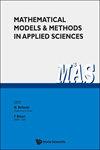On the robustness of informational cascades with imprecise binary signals
IF 3
1区 数学
Q1 MATHEMATICS, APPLIED
Mathematical Models & Methods in Applied Sciences
Pub Date : 2023-01-01
DOI:10.12988/ams.2023.917478
引用次数: 0
Abstract
The paper addresses uncertainty analysis in decision theory by applying imprecise probabilities to a herding behavior model, which describes imitative behavior and explains the informational cascade phenomenon. In the literature, the application of the principle of rationality in herding behavior generates informational cascades, i. e., sequences of actions in which each agent makes their choice by observing the decisions taken by those who acted before them, regardless of the private signal they own. Since the probability distribution of the signal may be hard to identify in some cases, this paper studies the herding behavior model by considering imprecise the signal probability. In the simplest case of a binary signal model, the agent’s private information is described by using a set of probability measures and assuming that the signal probability ranges in a probability interval. The paper aims to test the herding behavior model robustness when some assumptions no longer hold due to imprecise probabilities and prove that an informational cascade may occur even with a further noisy signal.具有不精确二进制信号的信息级联的鲁棒性
本文通过将不精确概率应用于描述模仿行为和解释信息级联现象的羊群行为模型来解决决策理论中的不确定性分析。在文献中,理性原则在羊群行为中的应用产生了信息级联,即行动序列,其中每个代理通过观察在他们之前采取行动的人所做的决定来做出选择,而不管他们拥有的私人信号。由于信号的概率分布在某些情况下难以识别,本文在考虑信号概率不精确的情况下研究了羊群行为模型。在二进制信号模型的最简单情况下,智能体的私有信息通过使用一组概率度量来描述,并假设信号的概率范围在一个概率区间内。本文旨在检验羊群行为模型在某些假设由于不精确的概率而不再成立时的鲁棒性,并证明即使在进一步的噪声信号下也可能发生信息级联。
本文章由计算机程序翻译,如有差异,请以英文原文为准。
求助全文
约1分钟内获得全文
求助全文
来源期刊
CiteScore
6.30
自引率
17.10%
发文量
61
审稿时长
1 months
期刊介绍:
The purpose of this journal is to provide a medium of exchange for scientists engaged in applied sciences (physics, mathematical physics, natural, and technological sciences) where there exists a non-trivial interplay between mathematics, mathematical modelling of real systems and mathematical and computer methods oriented towards the qualitative and quantitative analysis of real physical systems.
The principal areas of interest of this journal are the following:
1.Mathematical modelling of systems in applied sciences;
2.Mathematical methods for the qualitative and quantitative analysis of models of mathematical physics and technological sciences;
3.Numerical and computer treatment of mathematical models or real systems.
Special attention will be paid to the analysis of nonlinearities and stochastic aspects.
Within the above limitation, scientists in all fields which employ mathematics are encouraged to submit research and review papers to the journal. Both theoretical and applied papers will be considered for publication. High quality, novelty of the content and potential for the applications to modern problems in applied sciences and technology will be the guidelines for the selection of papers to be published in the journal. This journal publishes only articles with original and innovative contents.
Book reviews, announcements and tutorial articles will be featured occasionally.

 求助内容:
求助内容: 应助结果提醒方式:
应助结果提醒方式:


